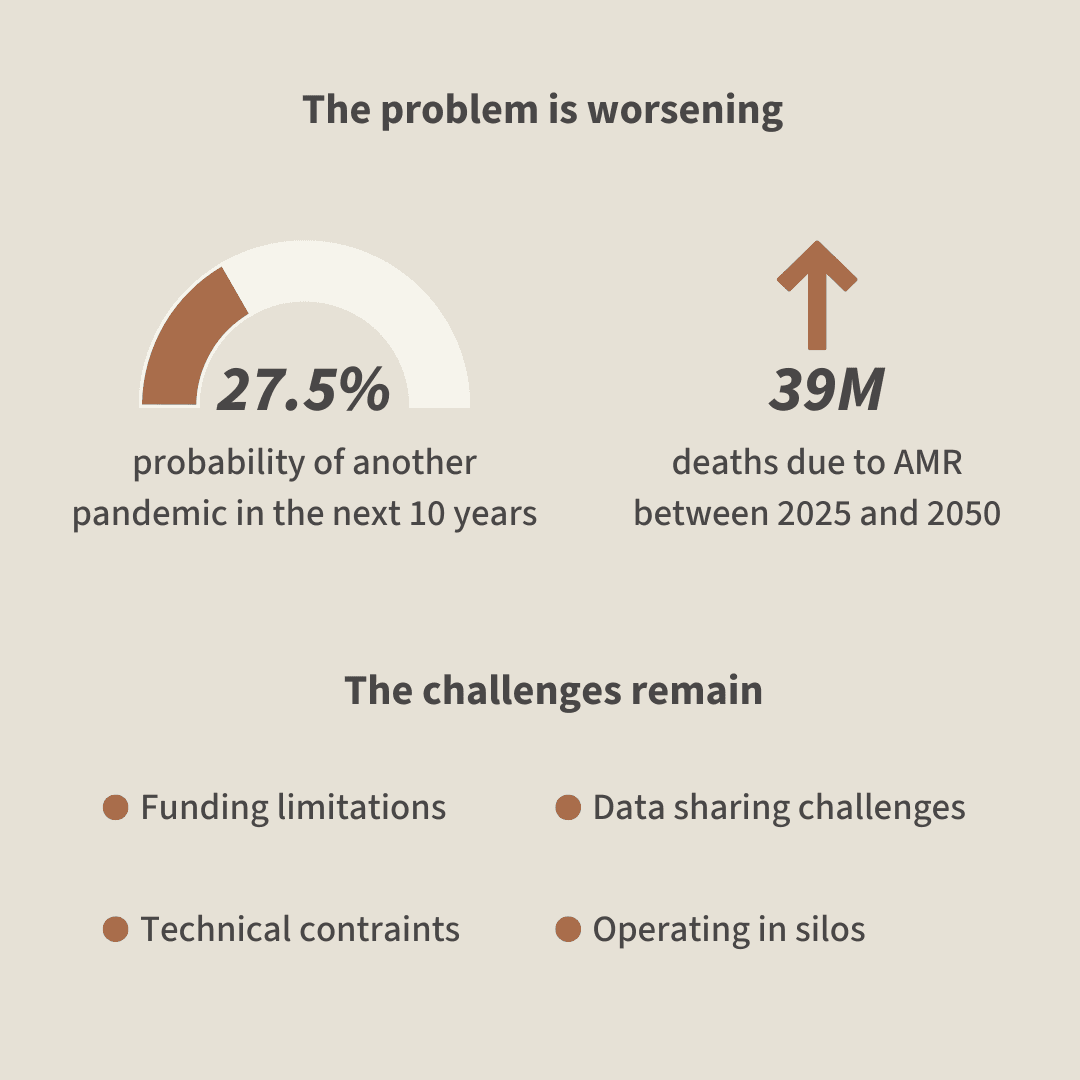Global Pathogen Analysis Service
GPAS is building analysis platforms that enable accurate detection and monitoring of infectious diseases, empowering an 'Always On' early warning system of potential outbreaks, and improve health outcomes for everyone, wherever they live.

Infectious Diseases and AMR are among the greatest challenges of our time
Climate change, rapid urbanisation, global travel, and changing land use are dramatically increasing the risk of emerging infectious diseases.
GPAS is targeting the millions of lives lost through the inappropriate treatment of infectious diseases and the avoidable escalation from local outbreaks to pandemics.

Its features and advantages include: human read removal, the transformational speed of its complete analysis & alignment to the WHO V2 catalogue.
Supported NGS Technologies: Illumina and Oxford Nanopore Technologies (experimental)
The SARS-CoV-2 analysis includes consensus genome assembly, lineage assignment, and identification of related isolates, for SARS-CoV-2 sequenced using tiled amplicon sequencing.
Its features and benefits include human read removal, the transformational speed of its complete analysis & phylogenetic relatedness.
Supported Technologies: Illumina and Oxford Nanopore Technologies.